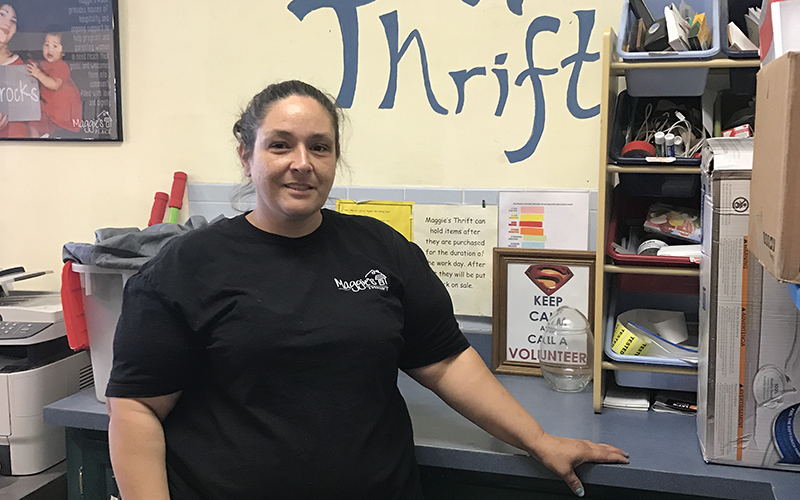There are nearly 10,000 homeless people in the state of Arizona, including veterans, the elderly, individuals, youth and families. In this episode of In Focus, we explore issues that especially affect two populations of homeless young adults: pregnant women and those who are lesbian, gay, bisexual or transgender.
Ten percent of homeless women are pregnant, according to an article published in the Maternal and Child Health Journal, and the Williams Institute estimates that 20 to 40 percent of homeless youth come from the LGBT community. We hear from one mother who found herself struggling with an addiction, homeless and pregnant with her fifth child, and why LGBT youth are disproportionately represented in homeless populations.
The In Focus theme song is called “Wounds (Remix)” by Ketsa, used under Creative Commons.
This episode also features “Labyrinth” by Sergey Cheremisinov, used under Creative Commons.
Jaime Tafoya is a mother of five from Long Beach, California who moved here to Phoenix in 2013. Her transition to this new place didn’t go as smoothly as she hoped.
“I was dealing with a methamphetamine addiction, which I had been struggling with for the past 19 years,” Tafoya said.
Soon after moving to Arizona, Tafoya spent six months in prison after being charged with two counts of forgery. Upon her release she became homeless while dealing with a methamphetamine addiction.
“I found myself pregnant. It wasn’t my first time, it was actually my fifth time. But pretty much all of the same circumstances, you know homelessness, my addiction,” said Tafoya.
The 2016 Annual Homeless Assessment Report to Congress estimated the total homeless population in Arizona was 9,707 people.
Access to health care for this community is very limited, presenting health concerns specifically to women who are also pregnant, including preterm births and low birth weight, according to the American College of Obstetricians and Gynecologists.
Tafoya ended up at Maggie’s Place, a non-profit organization with homes in the Phoenix area for pregnant and parenting women who need shelter.
“I was homeless at a halfway house, and I applied and called, and was able to get in, which was really amazing,” explained Tafoya.
After her son Noah, who is now two years old, was born, she attended a job-training program at Maggie’s Thrift, a non-profit of Maggie’s Place. After completing the program, she began work as a part-time employee and now works as the manager.
“Life is great, but there’ still struggles. Life isn’t perfect, there’s bumps in the road, but you just do the next right thing.” Tafoya explained, “In the beginning I would take the bus to daycare and then get back on and come to work, now I have been able to get a little car. Moving up a little bit.”
Maggie’s Place doesn’t serve every homeless mother.
All women applying to Maggie’s Place must be over the age of 18, at least 30 days clean and sober from substance abuse. They must not be in any current danger, not fleeing from any immediate domestic violence and cannot have a serious mental health diagnosis.
Mothers fleeing any domestic violence situations are directed to reach out to a domestic violence hotline.
According to The National Domestic Violence Hotline, in 2016 there were 5,050 contacts recorded from Arizona. More than 1,700 mentioned that children were involved, and 97 specifically mentioned children were involved.
The Arizona Department of Housing has a program called Coordinated Entry, designed to streamline the process of finding resources for individuals experiencing the state of homelessness.
“We don’t think we can truly end homelessness,” explained Michael Trailor, The Director of The Arizona Department of Housing. “But our goal as a community is to get to a place where we have the capacity to serve anyone who wants to be served.”
